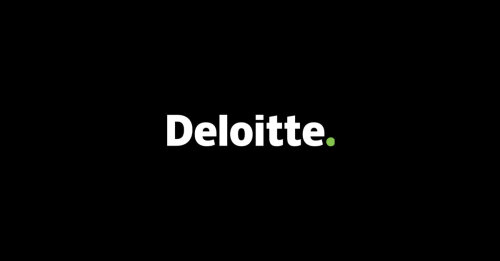Best Information Technology Lawyers in Oslo
Share your needs with us, get contacted by law firms.
Free. Takes 2 min.
List of the best lawyers in Oslo, Norway
About Information Technology Law in Oslo, Norway
Information Technology (IT) law in Oslo, Norway, encompasses the legal frameworks that govern the use, formulation, and management of technology and electronic communications. With Oslo being a major hub for technological innovation and development within Scandinavia, the city hosts numerous tech companies, startups, and a dynamic environment constantly driving advancements in IT. Legal regulations in this field aim to address data privacy, cybersecurity, intellectual property rights, digital transactions, and more.
Why You May Need a Lawyer
There are several situations where the expertise of a lawyer specialized in Information Technology can be crucial:
- Data Protection and Privacy Compliance: With stringent GDPR regulations in Europe, ensuring compliance in how data is processed, stored, and transferred is vital for businesses.
- Intellectual Property: Protecting software, digital products, and proprietary technologies from misuse, infringement, and theft.
- Cybersecurity: Navigating legal repercussions of data breaches and implementing security measures according to legal standards.
- Contractual Agreements: Drafting and reviewing contracts for IT services, licensing agreements, and partnerships.
- Dispute Resolution: Handling conflicts that arise from technological transactions or collaborations.
- Regulatory Compliance: Ensuring adherence to national and international tech-related regulations and standards.
Local Laws Overview
Several laws in Norway have particular relevance to Information Technology:
- General Data Protection Regulation (GDPR): As a member of the EEA, Norway adheres to GDPR, which controls how organizations manage personal data.
- Norwegian Personal Data Act: This national act complements GDPR, detailing additional requirements for handling personal data.
- Electronic Communications Act: Governs the transmission of electronic communications and includes rules on data storage and access rights.
- E-commerce and Online Services Act: Sets out the legal framework for e-commerce activities, including rules related to digital contracts and consumer rights.
Frequently Asked Questions
1. What is GDPR, and how does it affect businesses in Oslo?
GDPR, or General Data Protection Regulation, is a comprehensive data protection law that applies to all companies processing EU citizens’ personal data. It affects businesses by requiring stringent data protection practices and substantial penalties for non-compliance.
2. How can I ensure my startup is compliant with IT laws?
Compliance involves understanding relevant laws, implementing robust data protection policies, and possibly seeking legal advice to navigate specific regulatory requirements.
3. What steps should I take if my company experiences a data breach?
Immediately following a breach, you should contain the breach, assess its impact, notify relevant authorities as required by law, inform affected individuals, and take measures to prevent future incidents.
4. Are there specific cybersecurity requirements for businesses in Norway?
Yes, companies must implement appropriate technical and organizational measures to ensure data security, in line with GDPR and national regulations.
5. How do intellectual property laws protect software in Oslo?
Software can be protected under copyright law as a literary work, and additional protections may apply under patent law if it meets specific criteria.
6. What is the role of the Norwegian Data Protection Authority (DPA)?
The DPA supervises compliance with data protection laws, provides guidance, and takes action against entities that violate data protection regulations.
7. Can I transfer personal data internationally from Norway?
Yes, but it must comply with GDPR. Transfers outside the EEA require appropriate safeguards, such as standard contractual clauses or binding corporate rules.
8. What legal considerations apply to e-commerce in Oslo?
E-commerce is subject to consumer protection laws, digital contract regulations, and advertising standards, requiring businesses to be transparent and fair in their operations.
9. Are there specific laws for cloud computing services in Norway?
While no specific laws exist, cloud services must comply with general data protection and cybersecurity laws, ensuring that data handled in the cloud is adequately protected.
10. Do I need consent to process personal data for marketing purposes?
Yes, under GDPR and the Norwegian Marketing Control Act, explicit consent is typically required to process personal data for marketing activities.
Additional Resources
Here are some additional resources for further information and assistance:
- Norwegian Data Protection Authority (Datatilsynet): Supervisory authority for data protection regulation.
- Norwegian Communications Authority (Nkom): Regulatory body for electronic communications, including data privacy and cybersecurity.
- Norwegian Bar Association: Offers a directory of lawyers, including those specializing in IT law.
- Norwegian Industrial Property Office (NIPO): Agency handling patents, trademarks, and designs, including software and technological inventions.
Next Steps
If you need legal assistance in Information Technology:
- Identify the specific legal issues you are facing.
- Gather relevant documentation and information pertaining to your case.
- Consult the directory of IT lawyers via the Norwegian Bar Association.
- Schedule a consultation to discuss your needs and receive tailored advice.
Taking these steps can ensure you receive the legal support necessary to navigate the complex field of Information Technology in Oslo, Norway.
Lawzana helps you find the best lawyers and law firms in Oslo through a curated and pre-screened list of qualified legal professionals. Our platform offers rankings and detailed profiles of attorneys and law firms, allowing you to compare based on practice areas, including Information Technology, experience, and client feedback.
Each profile includes a description of the firm's areas of practice, client reviews, team members and partners, year of establishment, spoken languages, office locations, contact information, social media presence, and any published articles or resources. Most firms on our platform speak English and are experienced in both local and international legal matters.
Get a quote from top-rated law firms in Oslo, Norway — quickly, securely, and without unnecessary hassle.
Disclaimer:
The information provided on this page is for general informational purposes only and does not constitute legal advice. While we strive to ensure the accuracy and relevance of the content, legal information may change over time, and interpretations of the law can vary. You should always consult with a qualified legal professional for advice specific to your situation.
We disclaim all liability for actions taken or not taken based on the content of this page. If you believe any information is incorrect or outdated, please contact us, and we will review and update it where appropriate.









